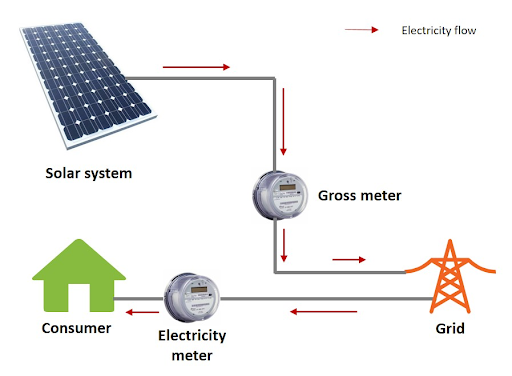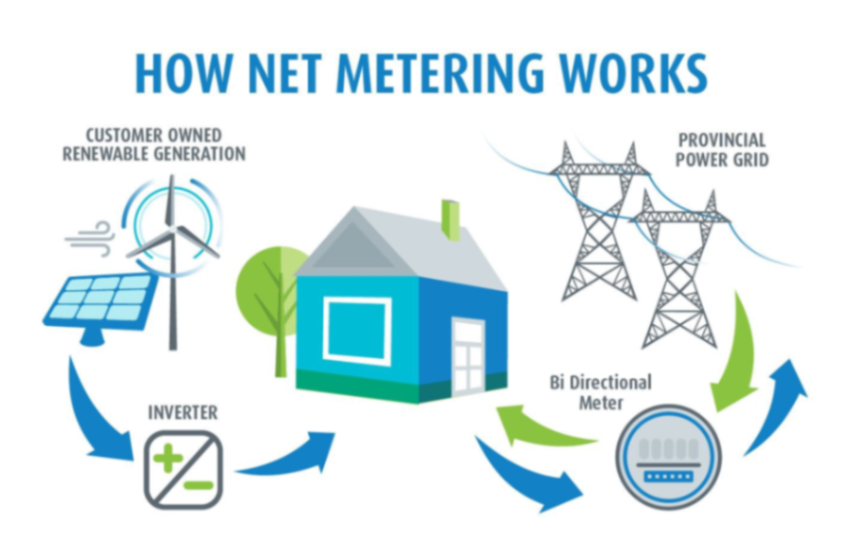What is solar gross metering and how does it work

Gross metering is a solar policy in which the power generated from a solar panel system is exported directly into the grid without any personal consumption. This means that users still take electricity from the electricity grid to meet their power requirements, but they can still install a solar power unit and sell the electricity generated to the power corporation at a price prescribed by the government. Gross metering isn’t the most convenient policy or the even the smartest possible, but for states that don’t allow net metering, gross metering allows users to get monetary benefit from solar power.
The other metering policy with regard to solar is net metering. In essence, net metering allows users to sell any excess power generated by their solar systems back to the grid. This amount of power is then deducted from the amount drawn by the house when the rooftop solar system is not generating power (e.g. at night) and your final monthly bill reflects that. So if you sell 400 units back to the grid and consume 500 units, you will only be charged for 100 units at the current market price. Net metering uses a bi-directional meter, also called a net-meter, which calculates and displays the net amount of electricty consumed. Gross metering on the other hand uses a dual metering system with individual meters to keep a track of electricity taken from the grid and given back to it.

Gross metering vs Net metering
As an example of the difference between the 2, under net metering, if a consumer takes 500 units from the grid and puts 450 units back into it (during periods of excess generation), the net bill will only be for the 50 units. However, under gross metering the consumer will pay the full price of the 500 units and receive separate payment for the 450 units at an average price fixed by the Government.
Average price of electricity in India varies from Rs 5-8/unit and that is the amount net metering saves you for every unit of electricity generated. However, under gross metering, the Government is selling power to you for Rs 5-8/unit but is buying it from you at Rs.3.5-4/unit. So, gross metering clearly generates less savings than net metering. However, it still allows you to generate savings by using your excess rooftop capacity in states where net metering is not allowed.
Although solar energy is on the rise in India, some states still do not have net metering policies. In such cases, gross metering often comes as a rescue. The consumer still pays for the power drawn by them from the grid. However, they also receive full payment for the power supplied by them to the grid. In conclusion, net metering is superior to gross metering, which however, still allows you to generate savings and do your bit for the environment.
 Unergia
Unergia